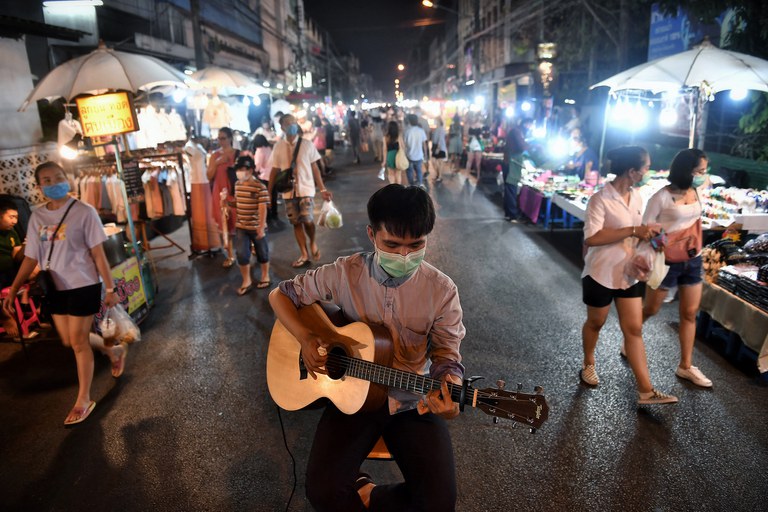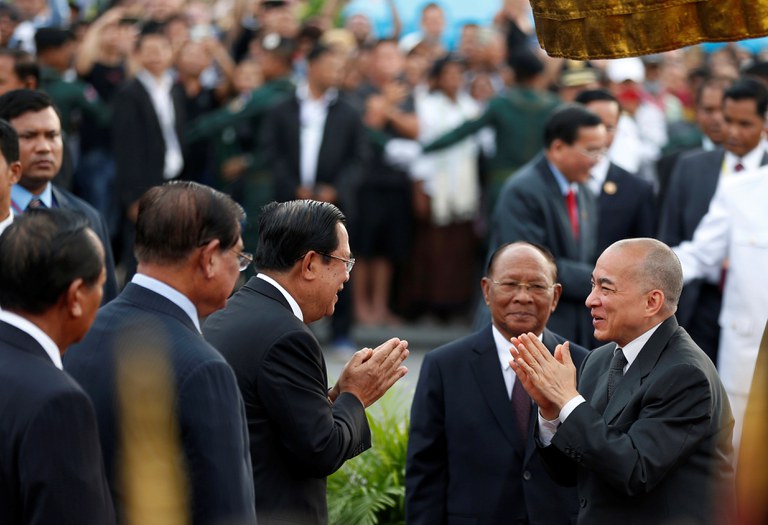Biden gets political boost on eve of key meeting with Xi
Leaders of half the world’s population gathered in Phnom Penh on Sunday but for the traveling White House press corps the big news was breaking half a world away as President Joe Biden’s Democrat Party re-secured control of the Senate in mid-term elections. That provided a political boost to Biden ahead of Monday’s face-to-face meeting in Bali, Indonesia, with China’s President Xi Jinping, which the American leader predicted would be defined by straight-talking between leaders of two rival powers. While the Democrats are still expected to lose control of the lower House of Representatives, which will make it more difficult for the Biden administration to get things done, the outcome was better than expected for the party. Speaking to reporters before attending Sunday’s East Asia Summit at a hotel in the Cambodian capital, Biden acknowledged that domestic politics has an impact on his international standing. The U.S. president’s trip to the region is all about signaling Washington’s commitment to the Indo-Pacific. “I know I’m coming in stronger, but I don’t need that,” Biden said. “I know Xi Jinping. I’ve spent more time with him than any other world leader. I know him well. He knows me. We have very little misunderstanding. We’ve just got to figure out where the red lines are and what are the most important things to each of us.” “There’s never any miscalculation about where each of us stand. And I think that’s critically important in our relationship,” Biden added. Although Biden had extensive in-person meetings with Xi during the Obama administration, and several phone calls with the Chinese leader since becoming president two years ago, Monday’s meeting will be their first face-to-face of his presidency. There are still many issues for him to raise, including China’s recent military exercises off Taiwan, its disputes with neighboring nations over the South China Sea, the crackdown on democracy in Hong Kong, trade and new U.S. restrictions on semiconductor technology. The meeting will take place on the sidelines of the Group of 20 Summit, which is the second installment of November’s Asian summit season. The first chapter ended on Sunday in Cambodia, which was hosting as the chair of the Association of Southeast Asian Nations – a position that will now be taken for the next year by Indonesia. The East Asia Summit is a gathering of ASEAN’s key dialogue partners in the Indo-Pacific. It comprises the 10 members of ASEAN, along with Australia, China, India, Japan, New Zealand, South Korea, Russia and the U.S. That accounts for about 53% of the world’s population and last year, nearly 60% of global gross domestic product worth an estimated $57.2 trillion, according to the Australian government. The diplomatic impact of Sunday’s summit was diluted by the absence of Xi – China was represented by Premier Li Keqiang – and Russian President Vladimir Putin who sent Foreign Minister Sergei Lavrov. Biden arrived late to the summit on Sunday morning, but later sat at the same table as Lavrov. There was no audio on the official feed of the meeting monitored by a journalist from the RFA-affiliated network, BenarNews, making it difficult to discern immediately if there were sharp exchanges over the Russian invasion of Ukraine. But on Saturday, U.S. Secretary of State Antony Blinken met with Ukrainian Foreign Minister Dmytro Kuleba to discuss the issue. “The Secretary discussed the United States’ unwavering commitment to assist Ukraine in mitigating the effects of Russia’s continued attacks on critical infrastructure, including with accelerated humanitarian aid and winterization efforts,” the State Department said. The two also talked about renewing the Black Sea Grain Initiative, which expires on Nov. 19 to support global food security and Ukraine’s battlefield continued effectiveness. Blinken told Kuleba the U.S. considers the timing and contents of any negotiations with Russia are entirely Ukraine’s decision. Also Sunday, Biden was holding separate meetings with South Korea’s President Yoon Suk-yeol and Japanese Prime Minister Fumio Kishida to discuss the nuclear threat from North Korea and other regional stability issues, the White House said. The U.S. has military bases in both countries. Biden’s presence at the summit gave him the opportunity to try to win over more countries into supporting the U.S. Indo-Pacific Economic Framework, an attempt to counter China’s economic and political influence in the region. Biden heads back to Washington after the G-20 while Vice President Kamala Harris takes his place at the Asia Pacific Economic Cooperation forum, better known as APEC, in Thailand between Nov. 16-19.





